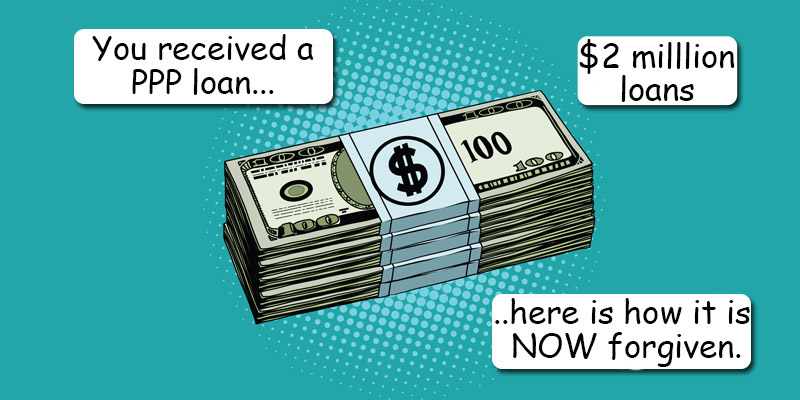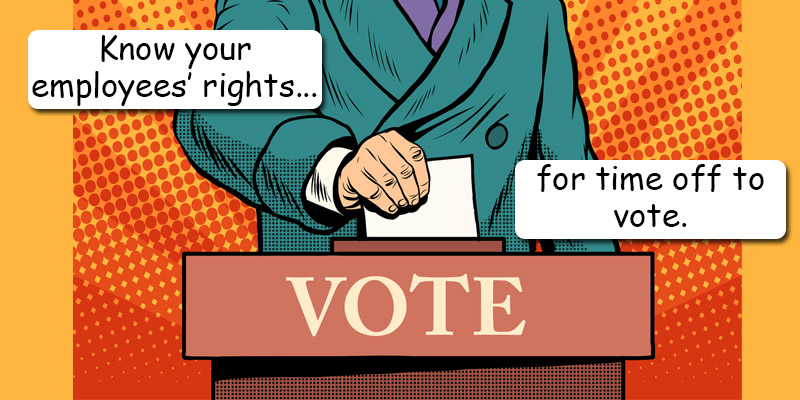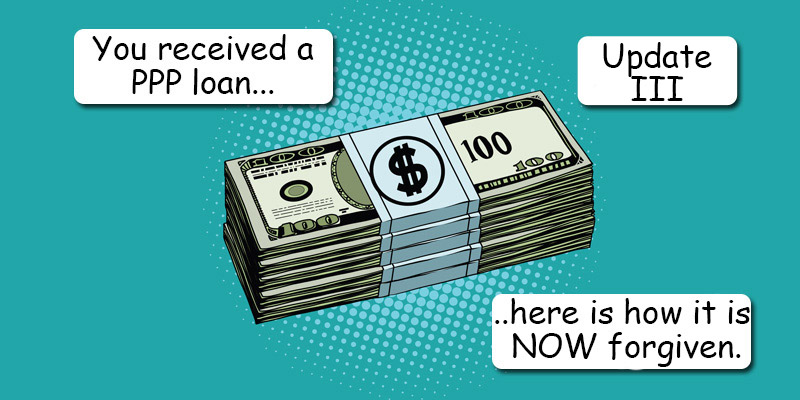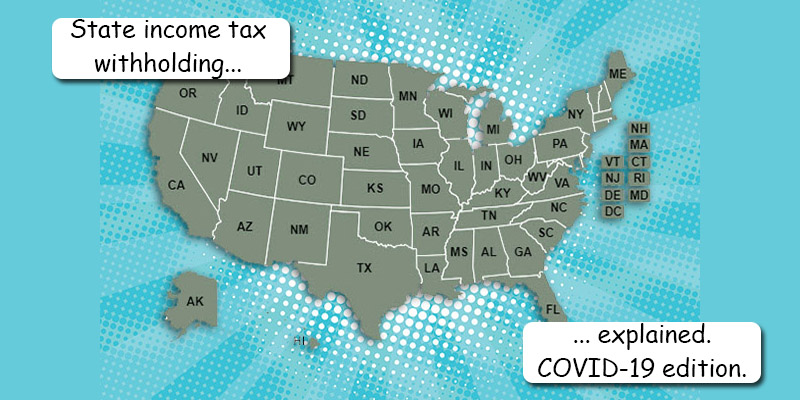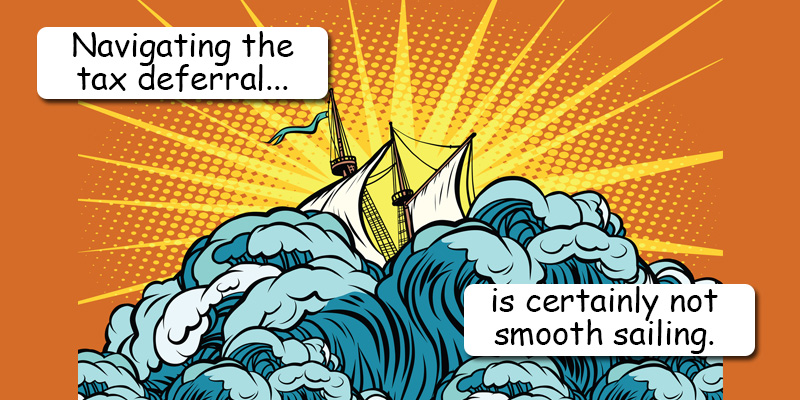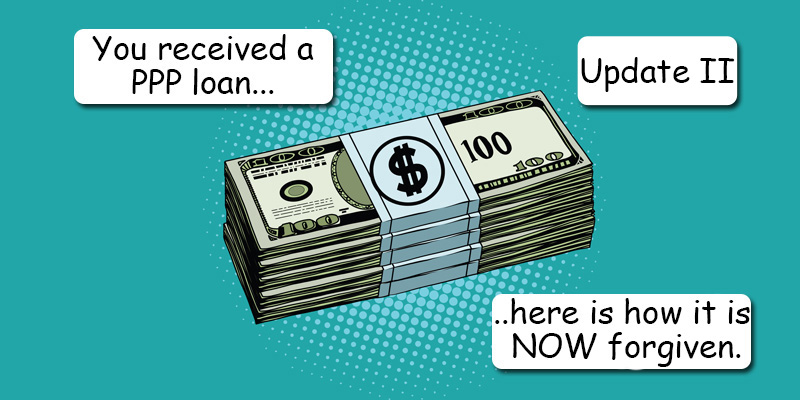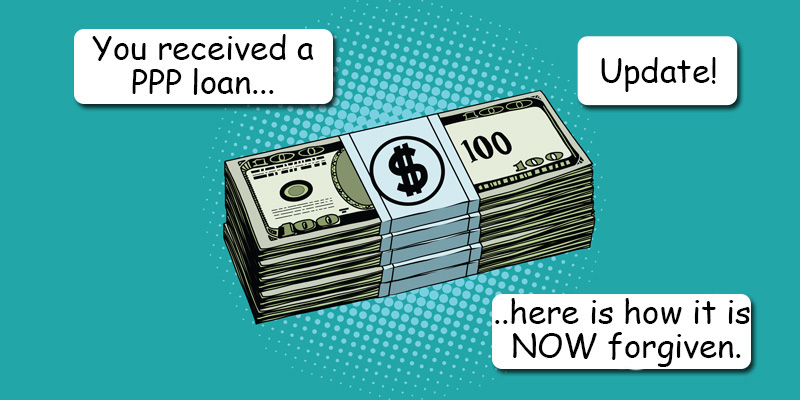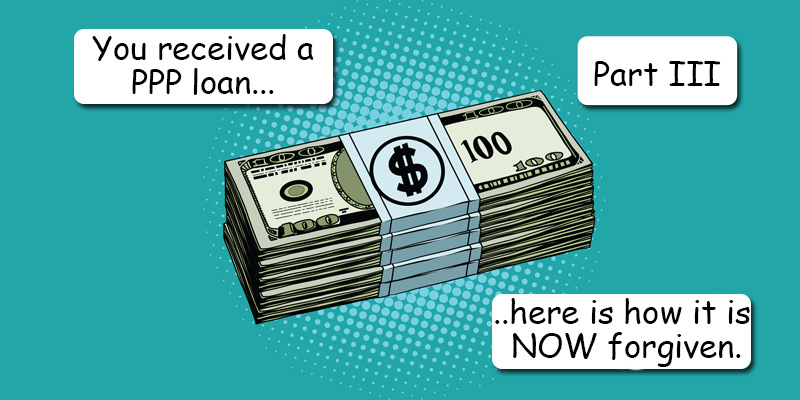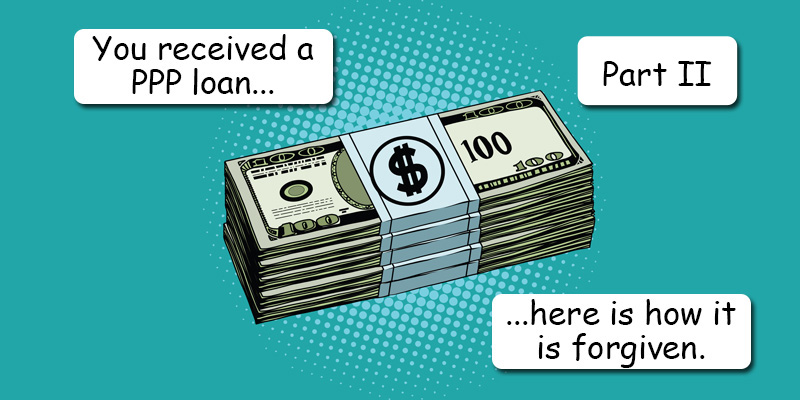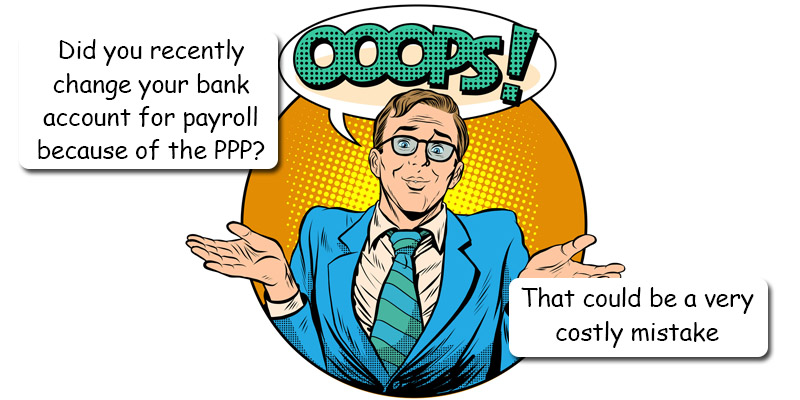On the Paycheck Protection Program (PPP) loan application, many certifications were made by the borrower. An important one to highlight is “current economic uncertainty makes this loan request necessary to support the ongoing operations of the Applicant.” It is a somewhat simple statement that the SBA further indicated that borrowers are acting in good faith, taking into account their current business activity and their ability to access other sources of liquidity sufficient to support their ongoing operations in a manner that is not significantly detrimental to the business. For example, it is unlikely that a public company with substantial market…
Do you know the laws on providing time off for your employees to vote? As we approach a major national election, you should review your policy to make sure you are in compliance with the law, as there can be civil and criminal penalties for violations. There is not a federal law on the books, so any time-off policy falls in the hands of the state in which the employee votes. Some states designate an amount of time while others will require paid time off, and just about all prevent you from firing or disciplining an employee for taking time…
On October 2, 2020, the Small Business Administration issued a five page Procedural Notice 5000-20057 regarding “change of ownership”. This is a very concerning topic at this point in the game as many companies have changed ownership in one form or another due to the slow-down, since receiving their PPP funding. Here is what is considered a change of ownership; 1. 20% or more of the common stock or ownership interest is sold or transferred, including to an affiliate or an existing owner of the entity, 2. 50% or more of the assets (measured by FMV) is sold or transferred, whether in…
Unless you live and work in one of the following nine states that do not tax wages, you are required to withhold state income tax on wages paid to your employees: Alaska, Florida, Nevada, New Hampshire, South Dakota, Tennessee, Texas, Washington and Wyoming. While this may sound simple enough, there are a number of considerations that need to be made, and we will go over them here, including the COVID-19 wrench in the machine. The Form First up is the form itself. There are a few states that did not adopt their own state withholding tax form, so here is…
Both the SBA and the U.S. Treasury have been busy throughout the month of August. We have seen the loan approval process close on August 8, the loan forgiveness application process open on August 10 (sort of), forgiveness rules clarification with the August 11th update of their FAQs, and a new interim final rules published on August 24th. The closing of the PPP loan program is probably long overdue. After several extensions of the program, it appeared that the demand for the loan funds had come to a halt and there was not much of a demand for it in…
We have not seen much change in relation to PPP loan forgivness, although there are a few notable updates. Payroll costs includes the wages up to $100,000 of annualized pay per employee. For those using the eight-week covered period, that is a maximum of $15,385 per individual, and for those using the 24-week covered period, that will be a maximum of $46,154 per individual. A company does not have to wait the full 24-weeks to file for forgiveness if they meet the spending requirements sooner. Let’s say you spend 100% of the loan amount on payroll costs after just 10…
Yes, you have read that correctly. It is the PPP Flexibility Act of 2020. Why the need to include “2020?” Are they expecting a PPP Flexibility Act of 2021, 2022, and so on? The Paycheck Protection Program itself was not designed to last beyond 2020, so hopefully this is not a bad sign of what is ahead. Let’s take a moment to see how this latest Act impacts those who will be looking for forgiveness on their loan. I will assume you already understand basic PPP terms such as ‘payroll costs,’ ‘covered period,’ and FTE, but if you need a…
The Small Business Administration (SBA) has released the Loan Forgiveness Application, which has provided answers to many previously-vague conditions of forgiveness. One problem is that for many, these instructions come towards the end of their eight-week loan proceeds spending and may be too late. I saw one article state that the loan application failed to provide instructions as to how to build a time machine to go back in time to correct what might have already been done. We may see a spike in Delorean resales! Rather than repeat what I have provided in the first article https://blog.paymaster.com/sba-paycheck-protection-program-ppp-loan-forgiveness/ , I…
Did you change your bank account with your payroll service because of the PPP? That could be a costly mistake.
0This is super important to read and understand how changing the bank account normally used for payroll to a new bank account that was opened to solely hold your PPP funds is going to produce unwanted results. We have found that a large number of companies, over the past few weeks, have requested to change the bank account in which their payroll is drawn. Upon questioning, it is discovered that the change is the result of the business owner receiving their Paycheck Protection Program (PPP) loan proceeds into a brand new separate bank account and wanting their payroll to be…

